The freedom fighters of India
The freedom fighters of India played a pivotal role in the country’s struggle for independence from British colonial rule. Here are some notable freedom fighters and their contributions:
- Mahatma Gandhi
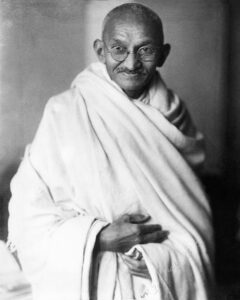
Mahatma Gandhi taken in London England UK at the request of Lord Irwin 1931
Mohandas Karamchand Gandhi, popularly known as the Father of the Nation, played a monumental role in India’s struggle for independence. He advocated for non-violent civil disobedience and led various movements, such as the Salt March and the Quit India Movement. Gandhi’s philosophy of Ahimsa (non-violence) inspired millions of people and united them in their fight against British colonial rule. - Jawaharlal Nehru
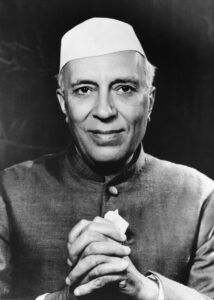
Jawaharlal Nehru, India’s first Prime Minister, was a leading figure in the freedom movement. He worked closely with Mahatma Gandhi and played a crucial role in the Indian National Congress. Nehru’s vision of a modern, secular, and democratic India guided the nation’s path after independence. - Subhas Chandra Bose
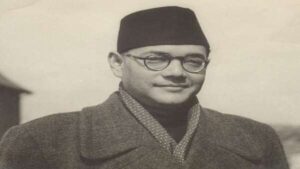
Subhas Chandra Bose was a charismatic leader who believed in armed resistance against the British. He formed the Forward Bloc and later the Indian National Army (INA), seeking support from Axis powers during World War II. Bose’s slogan “Give me blood, and I shall give you freedom” resonated with many and inspired them to fight for independence. - Bhagat Singh
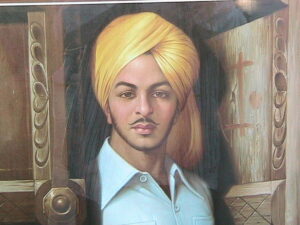
Bhagat Singh, a revolutionary freedom fighter, stood against British colonialism through acts of resistance. He participated in various protests and carried out acts of rebellion, such as the Kakori Train Robbery and the Central Legislative Assembly bombing. Singh’s courage and sacrifice made him an icon of the independence movement. - Rani Lakshmibai
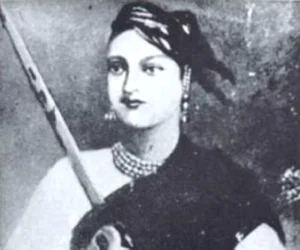
Rani Lakshmibai, one of the women freedom fighters and the Queen of Jhansi, played a significant role in the 1857 Rebellion, also known as the First War of Independence. She led her troops into battle against the British and became a symbol of resistance and bravery. - Maulana Abul Kalam Azad

Maulana Azad was a prominent scholar, journalist, and politician who actively participated in the non-cooperation movement led by Gandhi. He later became the president of the Indian National Congress and served as the first Minister of Education in independent India. Azad’s contributions to the education system were remarkable. - Sarojini Naidu
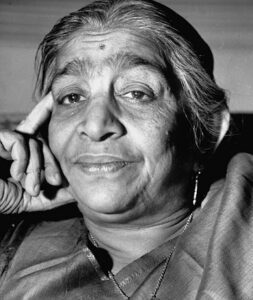
Sarojini Naidu, known as the Nightingale of India, was a poet, author, and activist. She actively participated in the non-cooperation movement and became a prominent female leader in the Indian National Congress. Naidu’s powerful poetry and oratory skills inspired many in the fight for freedom. - Sardar Vallabhbhai Patel
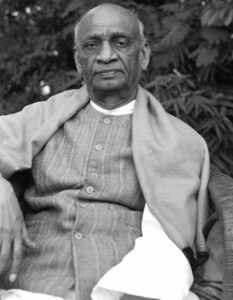
October 31, 1949, A32P. Sardar Vallabhbhai Patel photographed on October 31, 1949, his 74th birthday. Sardar Patel, also known as the Iron Man of India, played a crucial role in the integration of princely states into the Indian Union after independence. He was a key leader in the Indian National Congress and actively participated in various civil disobedience movements, including the Quit India Movement. Patel’s diplomatic skills and leadership were instrumental in unifying India.
- Lala Lajpat Rai
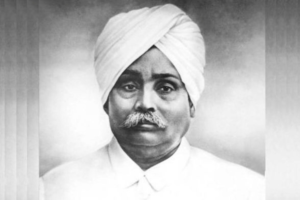
Lala Lajpat Rai, often referred to as Punjab Kesari (Lion of Punjab), was a prominent freedom fighter and a staunch advocate for Indian nationalism. He was one of the leading figures in the extremist faction of the Indian National Congress and actively protested against British policies. Rai’s death following injuries sustained during a lathi (baton) charge by the police sparked widespread outrage and further fueled the independence movement. - Maulana Mohammad Ali Jauhar
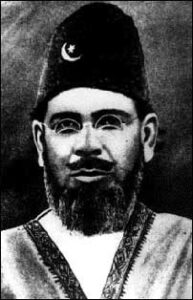
Maulana Jauhar was a renowned Muslim leader and an important figure in the Khilafat movement, which aimed to protect the interests of Muslims in India. He worked closely with Mahatma Gandhi and played a significant role in mobilizing the Muslim community in India’s fight for freedom. - Chandra Shekhar Azad
Chandra Shekhar Azad, also known as Azad, was a fearless revolutionary who dedicated his life to the cause of Indian independence. He was a prominent member of the Hindustan Socialist Republican Association and participated in various acts of rebellion against the British. Azad’s commitment to the cause remained unyielding, and he chose to die by suicide rather than be captured by the British. - Khan Abdul Ghaffar Khan
Khan Abdul Ghaffar Khan, popularly known as the Frontier Gandhi, was a prominent Pashtun leader who advocated for non-violence and worked towards Hindu-Muslim unity. He founded the Khudai Khidmatgar (Servants of God) movement, which aimed to promote social reforms and resist British rule through non-violent means. - Rajendra Prasad
Rajendra Prasad was a key leader in the Indian National Congress and became the first President of independent India. He actively participated in the non-cooperation movement and was imprisoned several times for his involvement in the freedom struggle. Prasad’s leadership and commitment to democratic principles played a significant role in shaping the nation’s early years. - Annie Besant
Annie Besant, a British-born activist, played a significant role in India’s freedom movement. She joined the Indian National Congress and advocated for Indian self-rule. Besant also worked towards women’s rights and education reform in India. - Maulana Shaukat Ali
Maulana Shaukat Ali, along with his brother Maulana Mohammad Ali Jauhar, was a prominent leader in the Khilafat movement. He actively mobilized Muslims in India and sought to protect the interests of the Muslim community. Maulana Shaukat Ali’s powerful speeches and activism played a significant role in galvanizing support for the freedom movement. - Alluri Sitarama Raju
Alluri Sitarama Raju was a revolutionary leader from Andhra Pradesh. He led the Rampa Rebellion, also known as the Rampa Revolt, against the British Raj. Raju fought for the rights of tribal communities and peasants and aimed to establish an independent state in the region. His courageous resistance inspired many others to join the struggle for freedom. - Usha Mehta
Usha Mehta was a freedom fighter and a prominent figure in the underground radio broadcast during India’s independence movement. She started the Congress Radio, which played a crucial role in disseminating information and spreading awareness about the independence movement among the masses. - Matangini Hazra
Matangini Hazra, also known as Gandhi Buri (Old Lady Gandhi), was a brave freedom fighter from Bengal. She actively participated in the Civil Disobedience Movement and led protests against the British. Hazra’s unwavering determination and courage were evident when she marched towards the police barricades chanting “Vande Mataram” and was ultimately shot dead by the British police. - Ram Prasad Bismil
Ram Prasad Bismil was a revolutionary poet and freedom fighter who actively participated in the Kakori Train Robbery. He was one of the founding members of the Hindustan Socialist Republican Association. Bismil’s patriotic poems and writings inspired many and continue to resonate with people today. - Begum Hazrat Mahal
Begum Hazrat Mahal was a prominent female leader during the 1857 Rebellion. She played a significant role in leading the revolt against the British in Lucknow and Awadh (Oudh) region. Begum Hazrat Mahal’s courage and leadership inspired other women to actively participate in the fight for independence. - Birsa Munda
Birsa Munda was a tribal leader and freedom fighter from Jharkhand. He led the Munda Rebellion against the British colonial administration, advocating for the rights and welfare of the tribal communities. Birsa Munda’s rebellion highlighted the struggles faced by indigenous people and their demand for self-rule.
These freedom fighters, along with many others, played significant roles in India’s struggle for independence. They fought against British colonial rule, inspired and mobilized the masses, and made immense sacrifices for the cause of freedom. Their contributions continue to be celebrated and remembered as integral parts of India’s history, reminding us of the courage, determination, and resilience that led to the birth of an independent India. The freedom fighters efforts and sacrifices continue to inspire generations and stand as a testament to the indomitable spirit of the Indian people in their quest for freedom.
